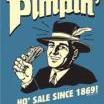Leaderboard
Popular Content
Showing content with the highest reputation on 10/27/15 in all areas
-
Din plictiseala am modificat putin tema de pe forum V 1.0 R4: - Am mai scos din borders - Butoanele de Rep/Report is mai evidentiate. - Am mai scos ce mai era portocaliu. - Am mutat data si linkul url in stanga, nu se vede excelent,dar alta idee nu am cum sa fac din CSS. [CSS] RST THEME V1.0 R4 - Pastebin.com http://i.imgur.com/VoZNtmJ.png === Versiunea pe Auriu/Maro : Preview : http://i.imgur.com/Mf405eM.png [CSS] RST THEME V1.0 R3 - Pastebin.com Versiunea pe Verde : Preview: http://i.imgur.com/xdinrZe.png [CSS] RST THEME - VERDE - Pastebin.com Daca doriti sa o folositi, instalati extensia Stylebot sau ceva care te lasa sa bagi CSS in pagina. Cod aditional: .postbitlegacy .postfoot .textcontrols a.reputation, .postbit .postfoot .textcontrols a.reputation,.postbitlegacy .postfoot .textcontrols a.report, .postbit .postfoot .textcontrols a.report { -webkit-filter: contrast(10%); } .tbody_left { border-radius: 10px 10px 0px 0px !important; overflow: hidden; position: relative; } .tfoot { border-radius: 0px 0px 10px 10px !important; overflow: hidden; } Bye.1 point
-
1 point
-
?Parlamentul European voteaza marti o propunere gandita sa protejeze neutralitatea internetului, principiul care spune ca toate tipurile de trafic web trebuie tratate in mod egal. Actuala propunere legislativa interzice furnizorilor de internet sa privilegieze anumite tipuri de trafic si vrea sa preintampine crearea unui "internet cu doua viteze", insa multi avertizeaza ca exista o multime de portite care trebuie modificate pentru ca legea sa fie cu adevarat utila. Intra in articol pentru a citi despre aspectele controversate si despre efectele pe care legea le-ar putea avea asupra viitorului internetului. Principiului neutralitatii pe internet (net neutrality) spune ca diverse tipuri de informatie NU trebuie discriminate, astfel ca site-ul unui mare magazin online, spre exemplu, nu ar trebui sa se incarce mai repede decat blogul unui prieten. In general, printre oponentii neutralitatii internetului se numara furnizorii de servicii web care sunt obligati sa investeasca masiv in hardware, deoarece traficul pe internet a crescut enorm si tot mai multe dispozitive sunt online si tot mai multe site-uri de video streaming sunt accesate. Astfel de companii spun ca ar fi normal ca cei care platesc mai mult sa aiba prioritate, consecinta fiind ca pe site-uri foarte mari viteza va fi superioara, in timp ce pe paginile care nu sunt dispuse sa plateasca privilegiile, viteza va scadea. In plus, foarte multi se opun abolirii principiului neutralitatii si fiindca ar fi posibil ca providerul de servicii sa ii interzica unui client sa intre pe anumite site-uri sau aplicatii. La nivelul UE se discuta inca din 2010 pe marginea unei legi care sa garanteze neutralitatea, iar marti trebuie sa se voteze astfel incat furnizorii de servicii de internet (ISP-urile) sa trateze traficul web al clientilor "fara discriminare, restrictii sau interferente". Au fost ani de discutii intre statele membre si varianta finala a legii este departe de a fi perfecta, spun sustinatorii neutralitatii. Exista o serie de portite de care ISP-istii si marile companii pot profita, in detrimentul micilor companii care vor trebui sa plateasca in plus pentru unele servicii. O clauza foarte controversata se efera la asa-numitele "servicii specializate" ale unor parteneri comerciali care sunt favorizati si primesc, asadar, tratament preferential. Practic, anumite companii vor plati si in schimb vor beneficia de servicii cu conexiuni mai rapide, insa acest lucru ar dezavantaja clar companiile mici care nu au bani sa plateasca taxa ce le-ar permite sa intre pe acest asa-numit "fast lane" - un "coridor" cu viteze superioare. Un alt punct disputat se refera la conceptul de "zero rating" prin care furnizorii de internet vor putea permite abonatilor trafic nelimitat doar pentru anumite servicii sau site-uri, in cadrul unui abonament cu trafic plafnat la o anumita limita de MB sau GB. De exemplu, un abonat din Marea Britanie care are un abonament cu 1 GB/luna pe telefonul mobil ar putea avea trafic nelimitat pe The Guardian, in timp ce pe alte site-uri de stiri, BBC sau The Telegraph, spre exemplu, traficul nu ar fi nelimitat si daca user-ul ar intra des pe site-urile acestea si ar urmari multe clipuri video, ar putea rapid sa consume plafonul din abonament. Atunci, user-ul si-ar spune ca mai bine ar intra des pe The Guardian, decat pe celelalte doua site-uri unde li se ia din abonament, iar aceste doua site-uri ar fi dezavantajate. Inca o prevedere "cu cantec" tine de drepturile ISP-urilor de a gestiona blocajele din trafic atunci cand acestea sunt pe cale sa se produca. Legea nu este insa destul de clara si, desi opinia generala este ca ISP-urile ar trebui sa aiba posibilitatea sa gestioneze momentele cu "ambuteiaje" in retea, exista riscul ca acestia sa abuzeze de prevederea din lege si sa incetineasca anumite tipuri de trafic, incalcand exact principiul neutralitatii internet-ului. Apoi exista si prevederi care le permit furnizorilor de internet sa imparta diversele tipuri de trafic in "clase" si sa permita viteze diferite. De exemplu o convorbire video ar putea fi optimizata, in timp ce accesarea e-mail-ului ar putea fi facuta mai lenta. Insa propunerea le-ar permite ISP-urilor sa faca aceste discriminari oricand, ceea ce ar putea afecta concurenta si i-ar putea dezavantaja pe cei care nu au bani pentru a plati pentru anumite servicii privilegiate. Supararea celor care critica actuala forma a legii este legata de faptul ca funrizorii au libertate mare in a prezice si preintampina congestia retelei, iar legea le-ar da o libertate maxima in a actiona asupra vitezei conexiunilor. In SUA, companiilor li se permite un "management rezonabil al retelelor", ceea ce inseamna un spatiu mai mic de manevra. Mai multe grupuri care sunt pentru mentinerea neutralitatii atrag atentia ca, desi propunerea este in general buna, parlamentarii europeni trebuie sa vina cu amendamente pentru ca "portitele" controversate sa dispara si ambiguitatile legislative sa se transforme in lucruri cat se poate de clare. In caz contrar, impactul cel mai mare va fi asupra micile intreprinderi ale caror idei ar putea sa ajunga la mult mai putini europeni daca numai marile companii, cele cu finante generoase, ar ajunge sa beneficieze de serviciile privilegiate si de viteza cea mai mare din internetul "cu doua viteze". Sursa: Zi cruciala pentru viitorul internetului in UE. Parlamentul European voteaza marti legea neutralitatii internetului, insa multe posibile ambiguitati starnesc ingrijorare - IT - HotNews.ro1 point
-
HACKING GSM SIGNALS WITH AN RTL-SDR AND TOPGUW The ability to hack some GSM signals has been around for some time now, but the steps to reproduce the hack have been long and difficult to set up. Recently RTL-SDR.com reader Bastien wrote into us to let us know about his recently released project called Topguw. Bastien’s Topguw is a Linux based program that helps piece together all the steps required in the GSM hacking process. Although the steps are simplified, you will still need some knowledge of how GSM works, have installed Airprobe and Kraken, and you’ll also need a 2TB rainbow table which keeps the barrier to this hack still quite high. Bastien writes about his software: So like I said my software can “crack” SMS and call over GSM network. How ? I put quotation marks in crack because my software is not enough to deciphered GSM itself. My software can make some steps of the known-plaintext attack, introduce by Karsten Nohl, and by the way, increase the time to decipher an SMS or call. I’ll not explain here all the steps because they are long and tedious, but there is a lot of work done behind the Gui. Actually my software can extract Keystream (or try to find some of them) from a capture file of GSM, or by sniffing GSM with a rtl-sdr device. Then you just have to use Kraken to crack the key and you’re able to decipher sms or call. Why ? This hack is very interesting! With only a little receiver (rtl-sdr) and some hard-disk capacity (2Tb), everyone can try to hack the GSM. It’s very low cost compare to other hack vector. Moreover the success rate is really great if you guess the Keystream correctly. So when I started to done this with my hands I though -> why don’t try to make something to do this automatically. This is how Topguw was born. Topguw, I hope, will sensitize people about risk they take by calling or sending sms with GSM. My software is currently in beta version but I did run several time and I got good results. Maybe better than something done by hand. But Topguw is made to help people who want to learn the hack. This is why several files are made to help GSM reverse-engineering. Topguw can be downloaded from GitHub at https://github.com/bastienjalbert/topguw. Bastien has also uploaded a video showing his software in action. If you’re interested in Bastiens YouTube channel as he plans to upload another video soon where he shows himself hacking his own GSM sms/call signals. Of course remember that hacking into GSM signals is very illegal and if you do this then you must check the legality of doing so in your country and only receive your own messages or messages that are intended for you. Sursa: Hacking GSM Signals with an RTL-SDR and Topguw - rtl-sdr.com1 point
-
A 15-year-old boy has been arrested in Northern Ireland in connection with the TalkTalk hacking attack, Scotland Yard has said. Metropolitan Police said a house had been searched in County Antrim on Monday afternoon at about 16:20 GMT. The boy was arrested on suspicion of Computer Misuse Act offences. He has been taken into custody at Antrim police station and is being questioned by detectives from the Police Service of Northern Ireland. A search of the address is ongoing and inquiries continue. A police statement said this was a joint investigation involving the Police Service of Northern Ireland (PSNI), and detectives from the Metropolitan Police Cyber Crime Unit (MPCCU). News that the TalkTalk website had been hit by a "significant and sustained cyber-attack" broke last week. The phone and broadband provider, which has over four million UK customers, said banking details and personal information could have been accessed. A criminal investigation was launched on Thursday. The company said it did not know how much of their customer information had been encrypted. At the weekend, TalkTalk's chief executive said the attack was "smaller" than originally thought. Dido Harding said any credit card details taken would have been partial and the information may not have been enough to withdraw money "on its own". Card details accessed were incomplete - with many numbers appearing as an x - and "not usable" for financial transactions, it added. Business leaders have called for urgent action to tackle cyber crime in the wake of the TalkTalk attack. On Monday, MPs said an inquiry would be launched into the cyber-attack that could have put customers' details at risk. Culture minister Ed Vaizey told the House of Commons the government was not against compulsory encryption for firms holding customer data. Shares in the telecoms company fell more than 12% in Monday trading, extending its losses from last week, when news of the attack first emerged. SURSA1 point
-
La un search al adresei primul rezultat e asta eXtreamCS.com - Master tepar : Security zone Vad ca apare pe mai multe forumuri ca se ocupa cu asa ceva. Cand va da cineva o adresa de contact/nume, incercati sa aflati cat mai multe date despre ea, sunt unii hoti de buzunare cu mai multe principii decat anumite persoane de pe aici.1 point
This leaderboard is set to Bucharest/GMT+02:00





